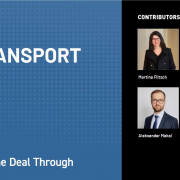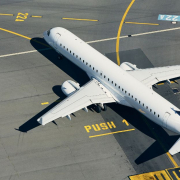Strikes in Europe as extraordinary circumstances
The aviation sector in Europe is currently experiencing a substantial number of strikes. There are nationwide protests in France due to a reform of the retirement system, strikes organised by the union for employees in the traffic sector in Germany, works meetings at Austrian Airlines, strikes by the security staff at London Heathrow airport, and strikes by the ground-handling staff of Swissport in Spain.
As a result, air carriers are forced to delay or cancel numerous flights and are confronted with unsatisfied passengers – and their claims for compensation payments under Regulation 261/2004. The question arises if the current strikes in Europe can lead to extraordinary circumstances within the meaning of Art 5 (3) of this regulation and could, therefore, exempt air carriers from their payment obligations.
This article aims to illustrate the relevant criteria when assessing strikes and to give an overview of court practice of the European Court of Justice (ECJ) and Austrian courts on different categories of strikes.
The principles:
Already in its ruling C‑549/07, the ECJ stated that for events to be regarded as extraordinary, they (i) must not be inherent in the normal exercise of the activity of the air carrier concerned and (ii) must be beyond the actual control of that carrier on account of its nature or origin.
These principles must also be kept in mind when evaluating cases of strikes.
Categories of strikes:
Since there is a variety of cases when it comes to strikes, a categorization is necessary to give general answers to types of strikes based on the principles mentioned above.
Strikes by the air carrier´s employees concerning demands vis-a-vis the air carrier
This category includes strikes that aim to enforce demands vis-a-vis the air carrier, especially for better working conditions or higher salaries.
The ECJ dealt with such cases on several occasions and concluded that such strikes, in general, do not constitute extraordinary circumstances. This is in line with the abovementioned principles, because such strikes are often inherent in the normal exercise of the activity of an air carrier and not beyond its actual control.
Examples of cases in which the ECJ stated that such strikes cannot constitute extraordinary circumstances are C-195/17 concerning “wildcat strikes” (the spontaneous absence of a significant part of the flight crew staff), and C-287/20 and C‑28/20, both concerning strikes organised by a union to enforce higher salaries.
Strikes by the air carrier´s employees for other reasons
This category is not as common as the first category, but currently of special relevance due to the numerous strikes France in connection with the reform of the French retirement system. The reasons for such strikes are not connected to the air carrier and it is not within the air carrier´s power to meet the demands of the strikes.
Such strikes are generally regarded to constitute extraordinary circumstances, because they are not inherent in the normal exercise of the activity of an air carrier and are beyond its actual control. Consequently, the ECJ stated in its ruling C-28/20 that strikes that originate from demands that only the public authorities can satisfy are capable of constituting extraordinary circumstances.
Strikes by others than the air carrier´s employees
In cases, in which the employees of other entities are on strike, it must be differentiated.
If an air carrier chooses to use another company to perform tasks that typically fall within its own responsibilities, such as check-in, ground-handling or de-icing of aircraft, strikes of the employees of such companies must be treated as if the air carrier´s own employees would have been on strike. Therefore, if such strikes concern demands vis-a-vis these companies, they can generally not constitute extraordinary circumstances, while strikes for other reasons can.
Consequently, the Austrian court for commercial matters (Handelsgericht Wien) in case 1 R 87/22y and the district court Schwechat in cases 20 C 221/20f, 20 C 98/20t and 20 C 234/20t decided that strikes of employees of a ground-handling company used by the air carrier, that protest a decision of an Austrian authority, can constitute extraordinary circumstances.
Strikes by employees of entities which are not used by an air carrier to perform tasks that typically fall within its own responsibilities, such as airport security or air traffic control, are generally regarded to be capable of constituting extraordinary circumstances.
In its ruling C-28/20, the ECJ states that strikes that are external to the activity of the air carrier, such as strike actions taken by air traffic controllers or airport staff, may constitute extraordinary circumstances. The Austrian regional court Korneuburg reaches the same conclusion in its cases 22 R 209/21x and 22 R 9/22m that concern a strike by air traffic control employees.
Closing remarks:
It should be highlighted that even in cases of extraordinary circumstances air carriers are only exempt from their obligations to make compensation payments if all reasonable measures within the meaning of Article 5 (3) of Regulation 261/2004 have been taken by them. Furthermore, Austrian courts usually demand detailed explanations and evidence regarding extraordinary circumstances. In practice, many court cases are lost because air carriers cannot meet these requirements and not because the strike in question was not capable of constituting extraordinary circumstances.
Therefore, it is essential to work with specialists in this field and to closely assess each case to have clarity about the chances of succeeding in court proceedings before investing substantial resources in them. Don´t hesitate to contact our Aviation Team to learn more about passenger claims in Austria.









